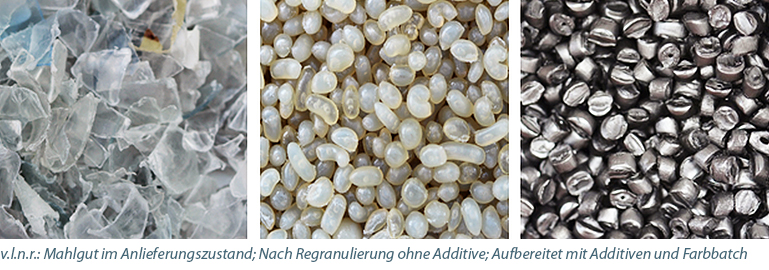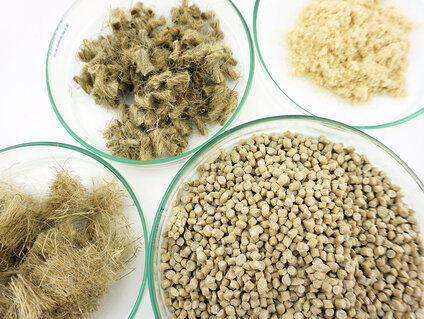In order to effectively avoid downcycling or cascading, i.e. the reuse of recycled plastics for lower-value applications, a defined and consistent quality of the recyclates is required. The DIN SPEC 91446 standard defines four data quality levels (DQL) for characterizing recyclates. The number of parameters to be characterized increases from DQL 1 to DQL 4. A material tested according to DQL 4 is thus better defined than a material certified according to DQL 1-3.
The accredited testing laboratory of the KUZ now offers the certification of recyclates according to the data quality levels (DQL) 2, 3 and 4 of DIN SPEC 91446. The KUZ team uses mechanical, rheological, spectroscopic and materials testing methods to precisely define the recyclate samples to be tested. Dr. Christian Schurig, head of the accredited testing laboratory at KUZ, emphasizes:
'We are pleased to support companies in characterizing their materials and thus help shape the industry's transformation towards a more sustainable circular economy.
Portfolio Plastics Testing
KUZ offers its customers a comprehensive range of services in the accredited field. This includes mechanical, thermal, rheological, electrical, optical and environmental simulation testing. In addition to standardized tests, special tests are also carried out, particularly in interaction with questions of process engineering and component design. In addition to the proven methods of the accredited testing laboratory, further testing techniques are available for failure analysis. For experimental investigations to obtain information on the damage process, intensive analysis can be performed using microscopy, FTIR spectroscopy, thermal analysis as well as rheology and viscometry. For non-destructive component testing, investigations using computed tomography can be used.
Overview plastics testing laboratory








